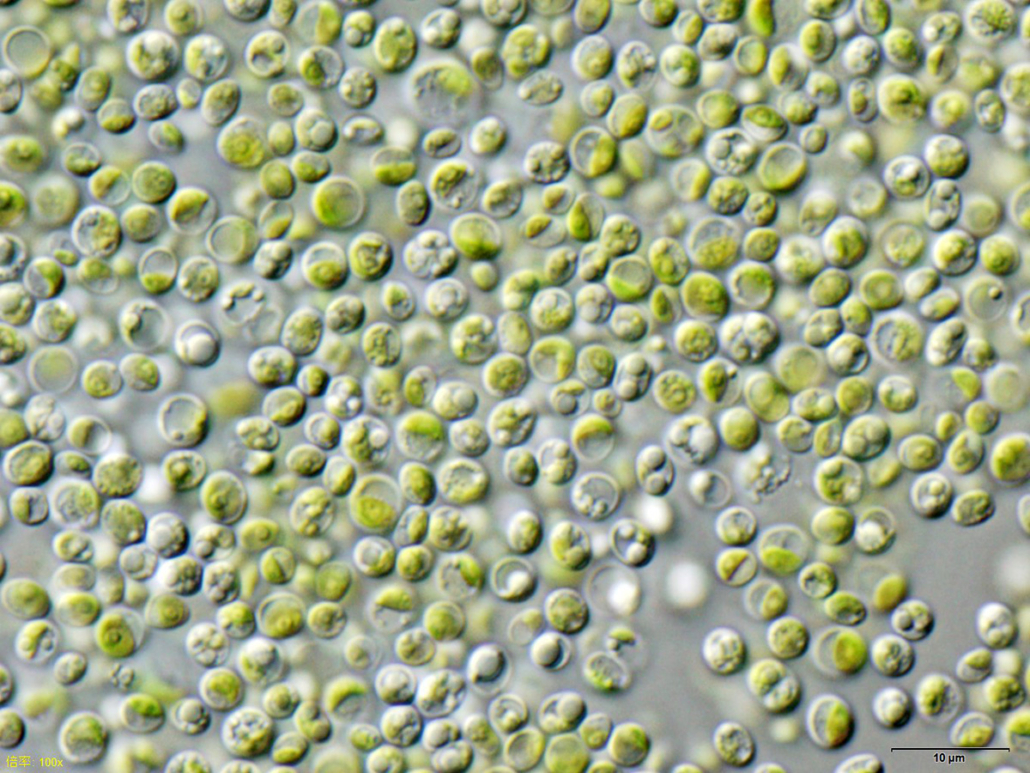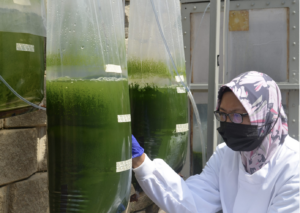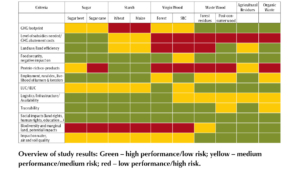
Algal enzyme synthesizes gasoline building blocks
An algal photoenzyme that synthesizes medium-chain hydrocarbons - the building blocks of gasoline - is set to boost industrial-scale production of biofuels.
Deciphering the mechanism of the photoenzyme Fatty acid photodecarboxylase (FAP), a research team co-headed by Frederic Beisson from University Aix-Marseille claims to have made a big step toward industrial-scale production of biofuels from vegetable oils. Using medium-chain fatty acids as a starting point, FAP from the microalgae Chlorella variabilis exhibited an ultrafast autocatalytic reaction that created C5-C11 hydrocarbons that can be used as biofuels.
The natural photoenzyme, which was discovered only six years ago, harnesses light energy to produce hydrocarbons for a variety of potential uses. Recent studies suggested that wild-type FAP has primarily adapted to form long-chain hydrocarbons (C16 to C18), the researchers succeeded in creating medium chain hydrocarbons, when they used C8-fatty acids as a substrate. They observed that these were produced up to ten times faster than long-chain hydrocarbons in cultures of C. variabilis as well as genetically engineered E. coli bacteria.
Using time-resolved spectroscopy, which involved illuminating and monitoring fluorescence changes over time, the researchers found that when they started synthesis with medium-chain fatty acids, FAP used n-alkane products formed earlier in the process to initiate an autocatalytic effect. The existing n-alkanes mimicked the missing section of the long chain, thereby enhancing FAP’s production of medium-chain hydrocarbons. They noted that catalytic activity was particularly high when converting C8 fatty acids, a size range that had been previously overlooked as a substrate for the reaction.
However, if we look at the CO2 balance of the process, a total of 9 moles of CO2 per mole of C8 fatty acid are released during the production and subsequent combustion of the hydrocarbons – one mole of CO2 during the decarboxylation of the fatty acid and 8 moles during the combustion of the octane. Although the process is bio-based, it is anything but CO2-neutral.
A theoretically more promising way to produce CO2-neutral or negative biofuels is being pursued by the US start-up Phytonix, which turns one tonne of CO2 into about 550 litres of n-butanol, 16% of which can be added to fuels in the USA.
Since the EU Commission is about to decide to ban the registration of new vehicles with combustion engines in favour of e-cars, for which there is currently too little regeneratively generated electricity available, developers see the development of biofuels for aviation and heavy goods traffic as more promising.



